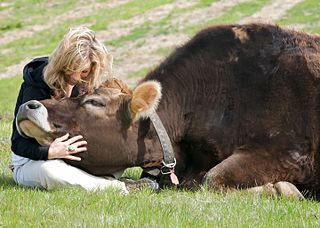A Quote by Plato
Such, Echecrates, was the end of our comrade, who was, we may fairly say, of all those whom we knew in our time, the bravest and also the wisest and most upright man.
Related Quotes
This is our Lord’s will, that our prayer and our trust be both alike large. For if we trust not as much as we pray, we do not full worship to our Lord in our prayer, and also we tarry and pain our self. The cause is, as I believe, that we know not truly that our Lord is Ground on whom our prayer springeth; and also that we know not that it is given us by the grace of His love. For if we knew this, it would make us to trust to have, of our Lord’s gift, all that we desire. For I am sure that no man asketh mercy and grace with true meaning, but if mercy and grace be first given to him.
I beg Our Lord, Monsieur, that we may be able to die to ourselves in order to rise with Him, that he may be the joy of your heart, the end and soul of your actions, and your glory in heaven. This will come to pass if, from now on, we humble ourselves as He humbled Himself, if we renounce our own satisfaction to follow Him by carrying our little crosses, and if we give our lives willingly, as He gave His, for our neighbor whom He loves so much and whom He wants us to love as ourselves.
I have been a lucky man. To feel the intimacy of brothers is a marvelous thing in life. To feel the love of people whom we love is a fire that feeds our life. But to feel the affection that comes from those whom we do not know, from those unknown to us, who are watching over our sleep and solitude, over our dangers and our weaknesses – that is something still greater and more beautiful because it widens out the boundaries of our being, and unites all living things.
No man can promise himself even fifty years of life, but any man may, if he please, live in the proportion of fifty years in forty-let him rise early, that he may have the day before him, and let him make the most of the day, by determining to expend it on two sorts of acquaintance only-those by whom something may be got, and those from whom something maybe learned.
Also our fellow competitors, who are indeed the people just mentioned - we do not compete with men who lived a hundred centuries ago, or those yet not born, or the dead, or those who dwell near the Pillars of Hercules, or those whom, in our opinion or that of others, we take to be far below us or far above us. So too we compete with those who follow the same ends as ourselves; we compete with our rivals in sport or in love, and generally with those who are after the same things; and it is therefore these whom we are bound to envy beyond all others. Hence the saying.
That was our first time together. Interesting, an interesting experience, but not earth-shaking. But then, I never expected it to be earth-shaking, not with him. What I was determined to avoid was emotional entanglement. A passing fling was one thing, an affair of the heart quite another. Of myself I was fairly sure. I was not about to lose my heart to a man about whom I knew next to nothing.
My friends, let us try to follow the Saviour's steps; let us remember all day long what it is to be men; that it is to have every one whom we meet for our brother in the sight of God; that it is this, never to meet anyone, however bad he may be, for whom we cannot say: "Christ died for that man, and Christ cares for him still. He is precious in God's eyes, and he shall be precious in mine also".









































